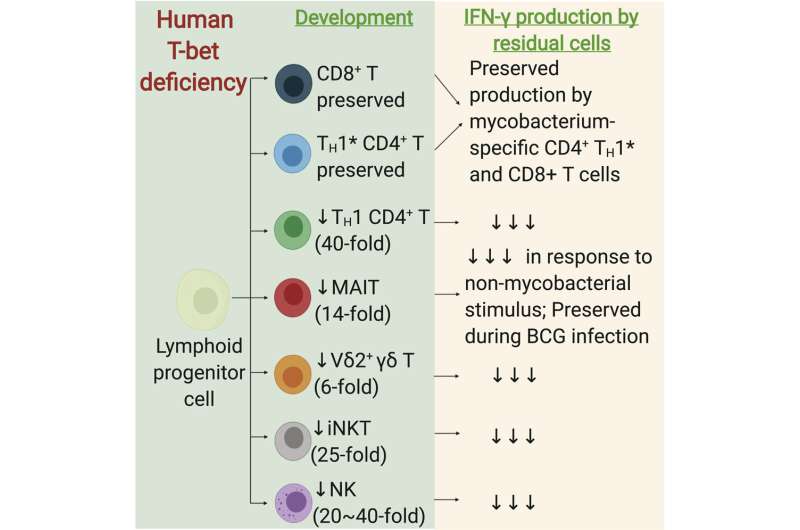Graphical Abstract. Credit: Cell (2020). DOI: 10.1016/j.cell.2020.10.046
Just because you are exposed to a pathogen does not mean you will become sick. Increasingly, scientists have shown that genetics play a central role in determining whether the pathogens that cause a wide range of disease—including influenza, warts and COVID-19—end up causing serious diseases.
The lab of Jean-Laurent Casanova, which has spent 25 years studying the interplay between human genes and mycobacterial disease, continues to uncover the genetic defects that separate those who develop serious infections from those who remain symptomless after being exposed to mycobacteria. Their latest insights, published in Cell, come from observing a single patient in Morocco living with severe mycobacterial disease.
In examining the patient's genome, the researchers found a mutation in a single gene responsible for the production of interferon γ, a key component of the immune response. As a result, this person had low levels of specific immune cells that normally help kill infected cells and slow the spread of mycobacterial infections. Although the mutation is very rare, the discovery may explain why some patients suffer more severe reactions to mycobacterial infections than others—putting us one step closer to understanding how our DNA, in general, influences our susceptibility to many other diseases.
"The study sheds light on the mechanisms of the immune system, and may help us to better understand why only certain people are vulnerable to other diseases such as tuberculosis," says Yang.
More information: Rui Yang et al. Human T-bet Governs Innate and Innate-like Adaptive IFN-γ Immunity against Mycobacteria, Cell (2020). DOI: 10.1016/j.cell.2020.10.046
Journal information: Cell
Provided by Rockefeller University
























